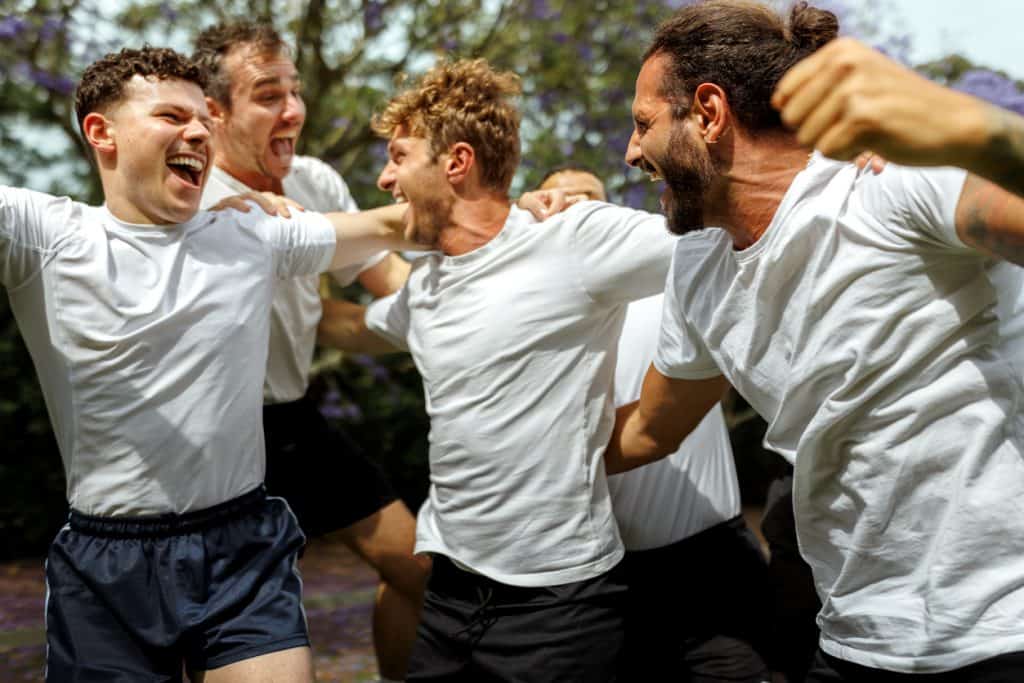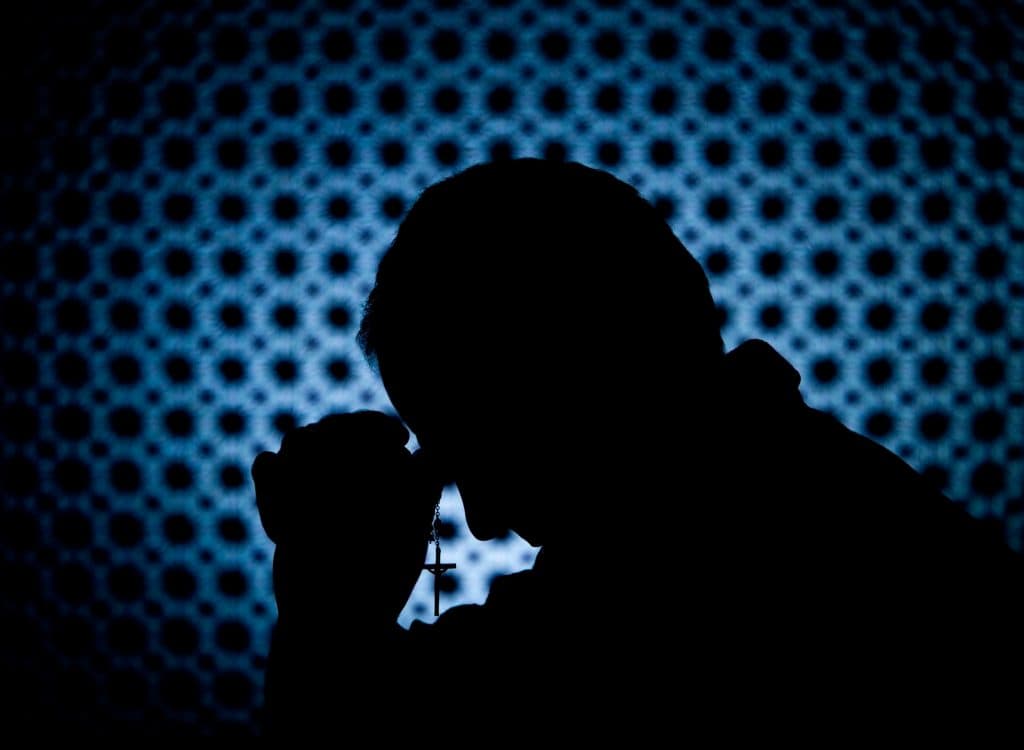Heatwaves swept the Pacific Northwest this summer. They turned the landscape from green to brown. Along the US-Canada border in Montana, the soil sucked up every bit of moisture. Cattle crowded under trees for shade and crows perched with beaks agape. The air was smoky from wildfires.
It reminds me of the dry thirsty feeling of being trapped by porn. Loneliness, anxiety, or disappointment can feel like a drought in your soul. Porn seems like an easy solution but it only leaves you feeling thirstier, more parched, and more withered.
Psalm 42 begins with a similar metaphor: “As the deer pants for water.” Like deer running from wildfires in a drought, our parched souls longing for a drink. But Psalm 42 reorients our thirst away from worldly things that can’t satisfy. It points us back to God and shows how to find hope and healing in the desert.
Identify Your Real Hope
The biblical metaphor of thirst for hope is remarkably consistent with the biology of thirst. Scientists now understand that thirst is the “gotta-have-it” mechanism designed to tell animals (and people) what they need for survival.¹ The brain releases dopamine to motivate the pursuit of water. Dopamine likewise comes into play with hope more generally. It’s related to hopes, dreams, and aspirations.
The Bible understands this too, and that’s the message of Psalm 42. The only cure for the downcast soul is clear in Psalm 42, and it’s repeated twice for emphasis: “Put your hope in God!” For the lonely, the tired, the beaten down, and helpless, our thirst is ultimately for God Himself.
Though dopamine plays an important role in motivating us to hope for good things, it can go bad when we lose hope. Pastor and author Tim Keller insightfully notes, “The erosion or loss of hope is what makes suffering unbearable.”2
When God seems distant and hope seems empty, we’re tempted to look elsewhere. Addiction is when the “gotta-have-it” mechanism for thirst—and hope—goes haywire looking for an escape from “unbearable suffering.” Instead of identifying God as our real hope and pursuing what we really need, our souls are drawn to empty sources of relief and satisfaction, such as porn.
The first step of finding hope and healing is to correctly identify our desires. What we thirst is for more than temporary relief from the desert. We thirst for more than a passing spiritual encounter with God. What we thirst for is an intimate personal relationship with God.
Understand Your Lack of Hope
But how do you hope in God when He feels far? How do you hope when you feel distant and disconnected from everyone?
When we lose hope in God, it’s easy to look somewhere else—and often it’s porn. But Psalm 42 urges us to refocus our hope on God. At first glance, this sounds like telling a thirsty person, “Stop being thirsty!” instead of giving them water. Porn, at least, gives a tangible outlet for thirst and disappointed hopes.
But the author of Psalm 42 grapples realistically with hopelessness, especially in verse 2-3. “My soul thirsts for God, for the living God. When can I go and meet with God? My tears have been my food day and night, while people say to me all day long, ‘Where is your God?’”
In hard times, God seems like the mirage of water in the desert—not a thirst-quenching reality we should hope for.
You may ask “Where is God?” but you don’t have to ask “Where is porn?”—it’s easy to find! And that makes it a tempting substitute. What do you do in this situation? This psalm shows the way.
Notice the question that the psalmist asks himself, “Why are you downcast?” What is your parched desert? Why is your soul thirsty? In other words, he does a little bit of self-reflection to get beneath the surface of his pain. He’s trying to understand his lack of hope.
Pastor and counselor Jay Stringer says that porn addiction is often fueled by the wounds we’ve received in the past. Because of this, self-reflection is an important step to finding healing:
- What are the wounds you’ve experienced through the decisions of others?
- What are the wounds you’ve experienced through your own decisions?
- What are the things that separate you from fellowship with God and others?
These are hard questions to ask. Maybe you’ve been rejected. Maybe you’ve been disappointed. Maybe you’re a single person hoping for marriage. Maybe you are married, but sex is difficult and unfulfilling. Maybe the pressures of work give you debilitating anxiety. Maybe you experience depression and have lost hope in just about everything.
The suffering you experience is always going to be some combination of things that you’ve done and things that others have done to you. For many who struggle with porn, sexual abuse or abandonment are a part of their past.
When you start poking around in your past, it’s going to hurt even more at first. But it’s an important part of the healing process. Psalm 42 shows us it’s important to understand your lack of hope in order to put your hope in God.
But it doesn’t stop here.
Connect to a Community of Hope
In Psalm 42:4, the writer remembers the good times of fellowship he had when he was together with God’s people. He remembers feeling close to God and close to others. He remembers not being isolated and ashamed.
Porn also makes us feel distant from people. You know the way it goes. You feel lonely, depressed, or frustrated. You go watch porn and you feel better for a moment, but the old feelings come back worse than ever. The separation from others is deepened. At Covenant Eyes, we call this the “Shame Cycle.”
Recovery mentor Dan Wobschall says, “Isolation is the devil’s playground and fertile soil for lies to grow and bear bitter fruit. Without a rational person, a godly person, to speak into our lives, the ability to convince ourselves to dive deeper into pornography and beyond in sexual sin thrives.”
The truth is porn makes us feel even more distant from people. But it’s not just separation from other people. Worse, it’s a separation from God, the one who can really satisfy our thirst.
Community is essential to hope and healing. Paradoxically, our communities often let us down and inflict more wounds on us. Those wounds drive us away and make us feel distant and separated—the comfort of porn often seems like a better option.
However, it’s a mistake to turn from people in the face of hardship. The psalmist remembers that it’s with the hope-filled community that he encountered God in the past. That’s where he’s experienced joy in God’s presence.
We tend to take on the characteristics of the people around us. We need hope-filled communities to remind us of God’s promises. We need relationships. We need accountability to remind us of God’s promises when we feel hopeless.
Look Backward to See Forward
Tim Keller says, “Humans are hope-shaped creatures. The way you live now is completely controlled by what you believe about your future.”³
So what do you do when your belief in the future is shaken? When the draught is severe and you’re overcome with thirst, what is the key to putting hope in God? Psalm 42 shows us the way: remember what God has done in the past.
First, ask yourself: Who is God? In 42:46 the psalmist looks to nature: the comforting hillside of his homeland, and the roaring majesty of the waters. He sees God’s hand in all these things, and he’s reminded of how big and powerful God is. Verse 7 describes the psalmist losing himself in the bigness of God, “Deep calls to deep at the roar of your waterfalls; all your breakers and your waves have gone over me.”
It’s counter-intuitive, but there’s great practical advice here! We can lose hope because we forget who God is. If you’re feeling hopeless and tempted to look at porn, don’t go to your computer or pick up your phone. Go for a walk instead, or take a drive out to the country. Fill your time with positive and life-giving activities that allow you to enjoy the world God has made.
(For more practical suggestions, see our free ebook, Hobbies and Habits).
Second, remember what the Bible tells us about God’s salvation. “Therefore I remember you from the land of Jordan and of Hermon, from Mount Mizar” (42:6). For an Israelite, the geography of his homeland would evoke the memory of God’s saving work in the past. God rescued the Israelites out of Egypt and brought them over the Jordan River and into the Promised Land. As a Christian, you know that God sent His son to die on the cross to save you from your sins. When you face hopelessness, look back on the story of Jesus and remind yourself of what He did and why.
You can also encourage yourself with stories of others who have gone through similar struggles. Check out our Victory Stories page for dozens of powerful testimonies of hope and healing from porn!
Third, the psalmist doesn’t limit himself to the big picture of salvation—he reflects specifically on God’s faithfulness to him. He does this by meditating on God’s Word and singing songs about him (verse 8). Here’s another practical suggestion if you’re feeling downcast and tempted to look at porn: work on memorizing Scripture or listen to praise music.
Is your soul dry and parched? Porn is like the mirage of water in the desert. But Psalm 42 tells a better way to satisfy your thirst, to find hope and healing. Identify your real hope, understand the causes of your hopelessness, connect to a community of hope, and then look backward at what God has done already to reaffirm your hope in the future.
1 Tim Keller, Walking with God through Pain and Suffering, 313.
2 https://sitn.hms.harvard.edu/flash/2019/neuroscience-thirst-brain-tells-look-water/
3 Keller, 314.










0 comments.